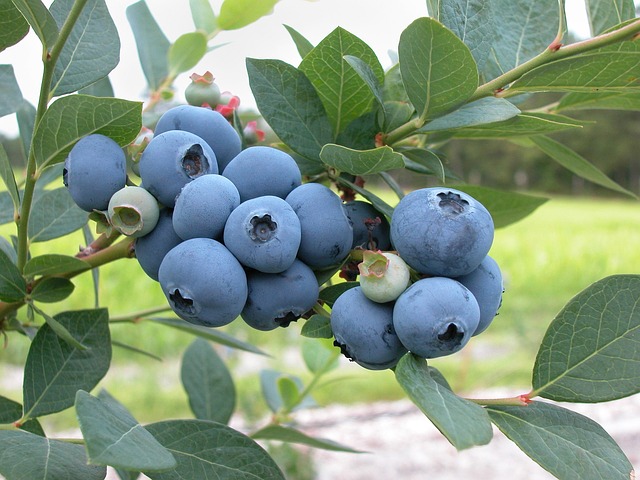By Lynda Kiernan, Global AgInvesting Media
ROC Private Equity has been making bold moves as it builds out an impressive and diversified portfolio of Australian ag holdings.
In December 2020, the Sydney-based alternative asset investment manager fully acquired Emerald Grain from Sumitomo, adding the grain interest to its portfolio that already includes Australian Oyster Coast, premium Wagyu beef operation Stone Axe, chicken producer ProTen, and tomato grower Flavorite.
Now, ROC has made another, making an A$314.8 million (US$245 million) counter bid (following MIRA’s A$300 million bid in November 2020) for VitalHarvest Freehold Trust (VFT).
VFT is an externally managed real estate investment trust (REIT) that holds a portfolio of properties valued at $275 million with a market capitalization of approximately $143 million (as of June 2020). It is the owner of the largest berry and citrus farm aggregation in Australia, which is leased to Costa Group, one of the country’s largest horticultural companies.
VTF focuses on investment-grade, mature, operating agricultural assets in Australia and New Zealand. Its portfolio is structured as seven farms, although there exists more than 130 property titles, of which some are aggregations of non-contiguous properties, according to the company’s website.
The seven farms include:
~ Corindi: a 927-hectare berry farm in New South Wales growing blueberries and raspberries.
~ Tumbarumba: a 71-hectare berry farm in New South Wales growing blueberries.
~9 Mile: a 103-hectare berry farm in Tasmania growing blueberries and raspberries.
~Dunloran: a 94-hectare berries farm in Tasmania growing blackberries.
~Solora: a 582-hectare citrus farm in South Australia growing grapefruit and oranges.
~Kangara: a 962-hectare farm in South Australia growing oranges, lemons, avocados, and persimmons.
~And Yandilla: a 1,003-hectare farm in South Australia growing oranges, grapefruit, lemons, avocados, and wine grapes.
Collectively, these assets contain a mix of both mature and new fruit trees and bushes, and hold 13,531.7 mega liters of water rights.
MIRA’s Offer Vs ROC
MIRA’s offer laid out two all-cash options. The first proposal is a scheme to acquire 100 percent of the units in the trust at A$1 each, reflecting a total valuation of Vitalharvest of A$300 million. This option represents a 27.4 percent premium on Vitalharvest’s closing unit price of $.785 on November 6, and gives unitholders a certainty of realizing the cash value of their units.
The second option is for the outright purchase of the portfolio at a value of A$300 million, representing a 7 percent premium to the fair market valuation of the assets as of June 30, 2020 – and giving Vitalharvest net proceeds that it can offer as distribution to its unitholders or reinvest into compelling alternative assets.
ROC’s offer, which it calls “highly compelling” comes in at A$1.08 per unit, reflecting an 8 percent premium over MIRA. In the firm’s offer letter it outlines that it plans to fund the offer through debt funding from Rabobank and Commonwealth Bank, and through equity funding from commitments from existing ROC investors and via its Roc Agri+Infrastructure Fund, which the Australian Financial Review reports is closing on an investment from one of Australia’s superfunds.
This certainly puts pressure on MIRA. However, its position isn’t completely threatened. Costa and MIRA are no strangers. Costa has existing relationships with MIRA via its leasing of multiple avocado farms from the manager, structured as fixed rental agreements over a 20-year time period.
“In the event that MIRA was successful in its offer and given the terms of our current leases with MIRA, Costa would be confident that the existing Vitalharvest leases could be restructured, with the aim that they convert to a fixed rental arrangement that reflects terms consistent with market conditions and that would be value accretive over the medium to longer term,” Costa expressed in a released statement last November.
Harry Debney, the soon-to-exit CEO of Costa Group, has stated that the company will not entertain any alternate agreement that doesn’t meet or exceed the parameters of the 20-year lease agreed to with MIRA.
Meanwhile, VitalHarvest’s entity board – Perpetual – stated that it is taking time to gather more information and further evaluate ROC’s proposal before making any further statements.
– Lynda Kiernan is editor with GAI Media, and is managing editor and daily contributor for Global AgInvesting’s AgInvesting Weekly News and Agtech Intel News, and HighQuest Group’s Oilseed & Grain News. She is also a contributor to the GAI Gazette. She can be reached at lkiernan@globalaginvesting.com

